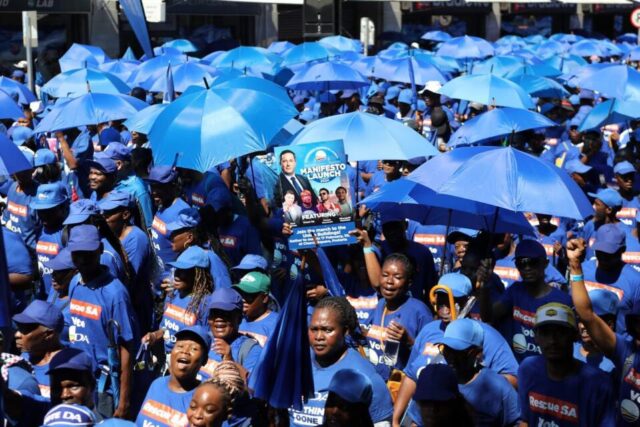Highlighting the Multi-Party Charter as a “game-changer” for uniting opposition parties, Steenhuisen stressed the importance of a strong, central party for a stable government, positioning the DA as that anchor.
AT THE much-anticipated launch of the DA’s 2024 election manifesto in Pretoria on Saturday, DA leader John Steenhuisen presented a bold vision to “rescue South Africa”, calling the upcoming election a “historic opportunity” for change.
Central to this, according to Steenhuisen, was the DA’s ambitious agenda for the country should they come to power.
This includes:
- Creating two million new jobs
- Ending load shedding and water shedding
- Halving the rate of violent crime,
- Abolishing cadre deployment in favour of merit-based appointments,
- Lifting six million people out of poverty,
- Improving education outcomes and
- Ensuring quality health care for all
Steenhuisen highlighted the significance of this year’s election, marking the first time in three decades that South Africans could realistically see a new government take the helm.
“For the first time in 30 years, the DA has a credible path into national government if enough of our voters turn out on election day,” he said of a potential political overhaul.
Central to the DA’s strategy is the Multi-Party Charter for South Africa, an initiative Steenhuisen credits as a “political game-changer”.
This coalition of opposition parties aims to consolidate efforts to unseat the current ANC-led government.
“By forging a common vision among opposition parties, the Charter provides a clear path to power for an alternative government,” Steenhuisen explained, stressing the unity and strength found in collaboration.
Reflecting on the ANC’s decline in the 2021 local government elections, Steenhuisen is optimistic about the DA’s chances in the national and provincial elections, provided there is a high voter turnout.
He warned against the fragmentation of votes among too many parties, advocating for a strong, central party to ensure stability.
“Only the DA has the size, experience, and demonstrated track-record of good governance to serve as the anchor for a stable and successful Multi-Party Charter government,” he asserted.
The DA leader zoomed in on the potential consequences of failing to support the Multi-Party Charter, cautioning against the possibility of an ANC-EFF coalition, which he termed a “coalition of corruption.”
He framed a vote for the DA as a preventive measure against such an outcome, making it a “win-win proposition” for voters.
Steenhuisen painted a picture of a DA-led government as one of action over inaction, emphasising the party’s track record in regions like the Western Cape and cities like Cape Town and Tshwane.
“Instead of endless commissions, talk shops, and summits, you will get a new government that gets things done,” he pledged, setting the stage for what could be a pivotal moment in South Africa’s political landscape.








